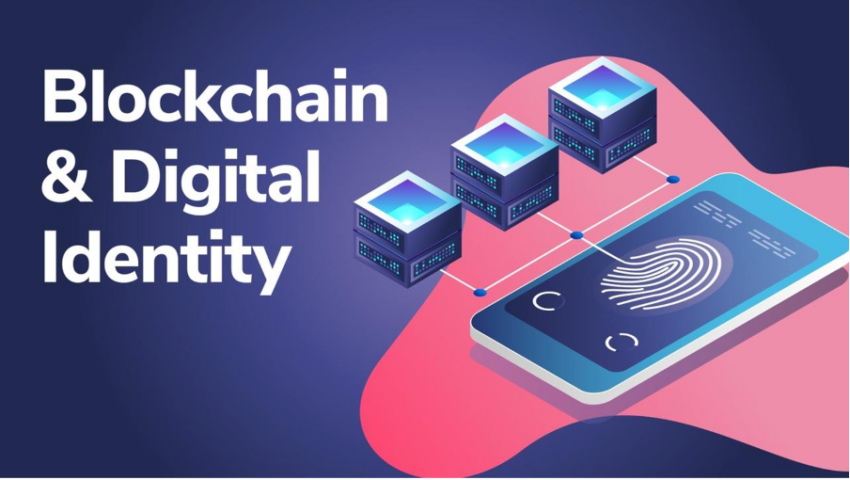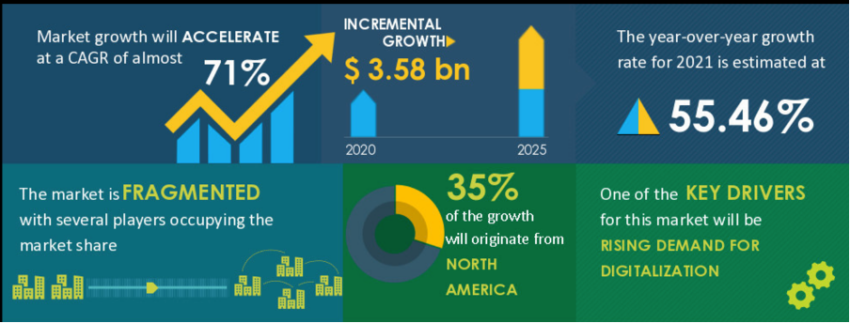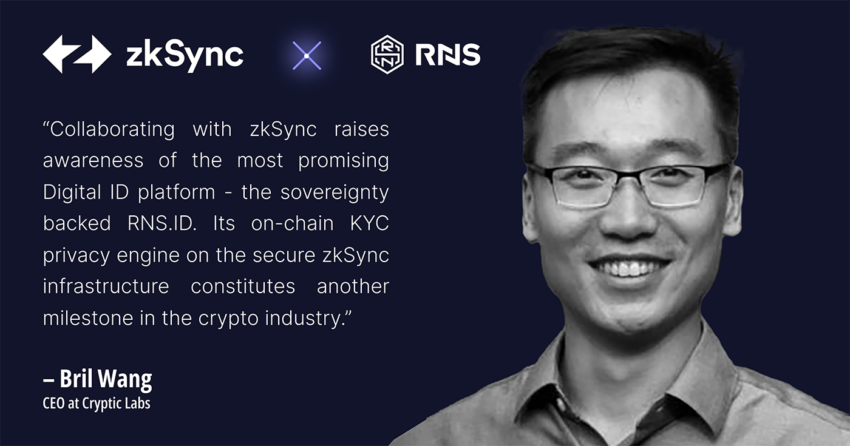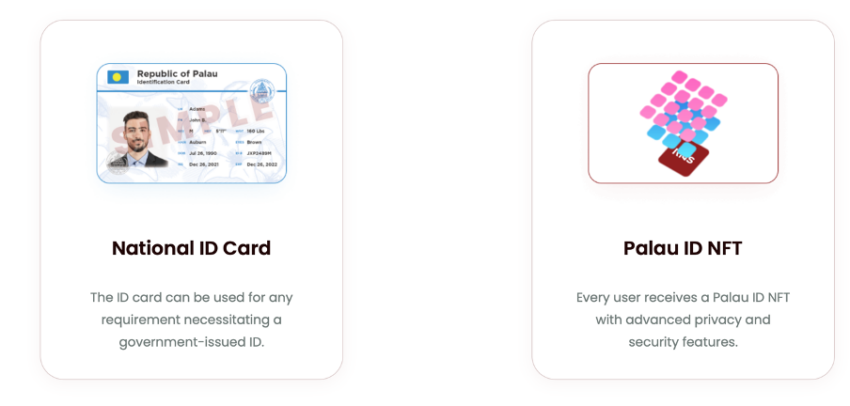Blockchain-based digital ID market could grow more than $3 billion
Blockchain-based digital IDs have seen significant growth over time. Various bodies, from the European Union to the Pacific Islands, have shown support. The blockchain identity market could grow an additional $3.58 billion by 2025 at a compound annual growth rate of 71%.
Every day, individuals carry their wallets full of cards. But only a few are widely accepted. Society has established global norms for how we present and verify these physical card credentials. But there must be a tangible equivalent for digital certificates/identification.
Traditional IDs concerns
There are a couple of reasons for this. First, there must be a standard mechanism for issuing digital cards. To provide universally acceptable digital cards or identification, one needs digital identifiers that individuals can own, independent of any entity, organization or institution.
Email addresses and phone numbers are used as identifiers to access websites and apps. Nevertheless, access to these identifiers and personal information is at the mercy of service providers, who can revoke them at any time.
Second, there are only sometimes accepted standards for expressing, exchanging, and verifying digital credentials across organizational boundaries. All this is about to change. A new form of digital identity based on new standards, such as verifiable credentials and decentralized identifiers, could enable such digital credentials to work everywhere. Be more reliable and respect privacy.
Blockchain IDs Play here
Harnessing the power of blockchain and biometrics can modernize identity management for organizations and individuals. Mainly by establishing tracking and managing digital identities in a more efficient, user-friendly, secure and less open to fraud way.

Biometrics are securely captured through a person’s fingerprint, voice, face or iris scan, which can then be processed to create a unique identifier using multiple security protocols. The identifier can then be registered on the blockchain, which acts as an index with links to all relevant data.
This makes it easy to find, access and share information without the individual’s data being stored on the blockchain. The system allows individuals to generate their public and private keys. Which they can use to sign the data they send to others. That way, third parties can be sure that the information comes from the right person and not a fraudulent impostor.
What is the advantage?
The primary benefit of this identity system is that individuals are always in control of their data. A person decides what information is shared, who sees it and for how long. Instead of multiple paper documents, this digital identity can use a single, easy-to-use mobile application.
The system makes life easier for organizations too. It is interoperable with other databases, so existing identity data remains in place. It also makes background checks easier. Certificates can be trusted without repeating the process.
Looking to the end of how decentralized system elements can evolve, this digital identity component will unlock pretty much everything. The main focus is to implement it in a privacy-preserving way rather than giving the government more control.
What the world needs
Joseph Weinberg, the co-founder of Shyft Network, aired his thoughts on the matter.
“In the last ten years, identity systems have not worked, and the reason is that we need something that is ten times better than what we have. Regulation is a compelling function of use and adoption. This adoption has not been organic for a number of reasons.
“First, there is the implementation. Governments are not technology companies. They are not the fastest in the world to implement most things. It’s just the function of how a government works. The fastest way for people to adopt and adapt to new technology at a national or global level is a mandatory requirement, which seems harder to implement since there are a number of privacy concerns that governments are juggling. Second, it is controlled. Once identity and digital technologies are embedded in a society, they never leave.”
Today’s world is predominantly democratic, but it is changing rapidly. Therefore, the question of control of information and subsequent moral questions come into play. Building privacy and anonymity into digital identity systems will be critical to solving some of these problems.
Over the past 20 years, most great technologies, such as payment systems, video streaming and digital currencies, have come from the internet. They have not come from governments. It is intuitive to think that digital identities will also come from it.
Traction across the globe
A June 2021 report published by ReportLinker mentioned the potential increase. Here, the blockchain identity market will grow an additional $3.58 billion by 2025 at a compound annual growth rate of 71%.

Key factors include the growing demand for digitization and privacy concerns. As a result, various solutions broke the market that met this need in the form of non-fungible tokens (NFT). In addition to distributed ledger technology (DLT), and bare-bones blockchain technology.
Geographically, various areas have shown interest here.
South Korea aimed to introduce blockchain-based digital IDs to its citizens with a smartphone by 2024, according to Bloomberg. Digital IDs will be installed on smartphones, working as effectively as physical resident cards.
Other countries and global organizations are interested in building a digital ID program to keep data secure. An example is the GLASS program in the EU.
First government ID deployed as NFTs
Moving on to a more execution approach. The Pacific island nation of Palau became the first sovereign nation in the world to issue digital residency IDs to global citizens.
The Republic of Palau and blockchain development firm Cryptic Labs partnered to launch the Root Name System (RNS), a digital residency program.

RNS is the official technology provider for the Palau Digital Residency Program. Moreover, the world’s first digital Web3 identity platform is developed to support the application and issuance of sovereignty-backed IDs.
Bril Wang, CEO of Cryptic Labs, said the integration would provide more transparency.

This program will offer every global citizen a legal, government-issued ID from home. With both physical ID card and digital ID for connected services.

Over 80% of crypto exchanges worldwide support RNS.ID. These include Binance, Coinbase, Bitmart, Kucoin, Gate.io, Bybit, Huobi, etc. Other reported use cases are boarding a flight (within jurisdictional limits), hotel check-in, membership registrations and identity verifications at various institutions such as Airbnb.
In addition to this, the digital identity Web3 platform is integrated with RNS.ID, making it the first application to use zero-knowledge secure technology for public identification.
RNS’ on-chain KYC solution is designed around a “privacy engine” to encrypt users’ data. In addition, cryptocurrency exchange Huobi partnered with the Commonwealth of Dominica to roll out a digital identity and national token service.
Apart from this, Africa also saw Blockchain-based IDs rolled out to millions of students in partnership with blockchain firm and Cardano developer Input Output Hong Kong (IOHK).
Risks and concerns
There is a demand for digital identities. While digital identity has several advantages compared to traditional identity systems, regulation becomes a key area to address when discussing a future with digital identities.
Since 2014, blockchain compliance has been very complicated since there was no regulation.
Disclaimer
All information on our website is published in good faith and for general information purposes only. Any action the reader takes on the information contained on our website is strictly at their own risk.


